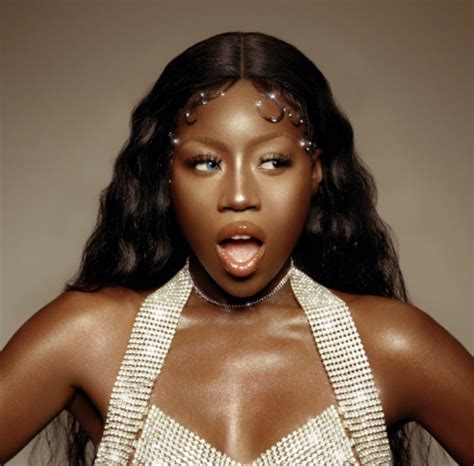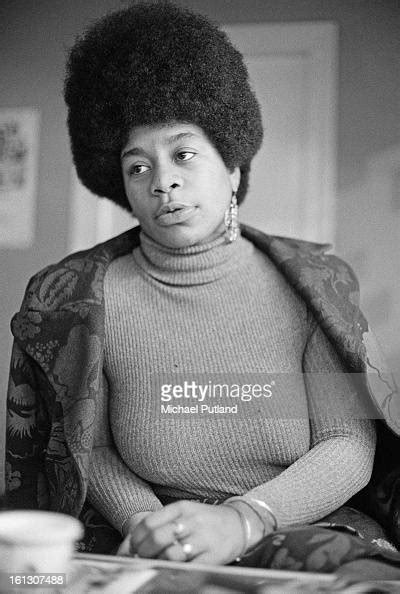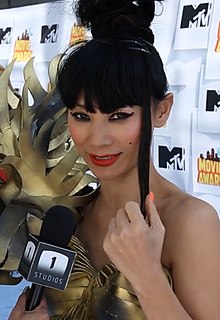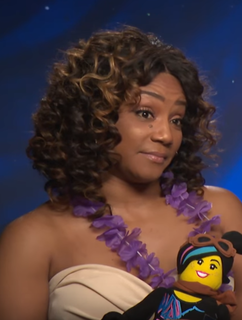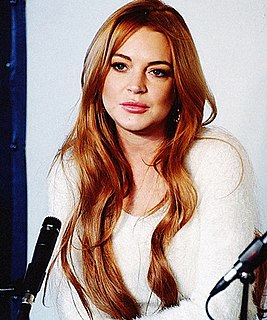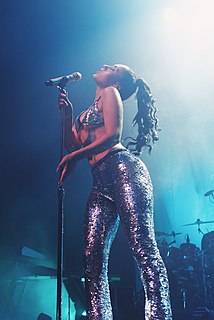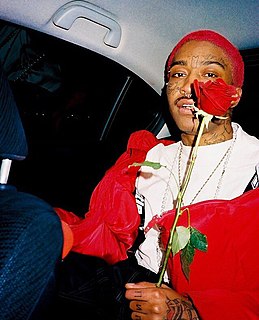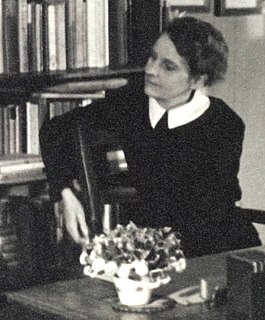A Quote by Bree Runway
I don't like when people say I'm the next this person or whatever. I feel like I'm very much my own person.
Related Quotes
I'm a shy, nervous person, and I don't like teaching with "terms." I didn't teach them, like, "This is first person, this is second person, this is foreshadowing," or whatever, so no one probably felt like they were learning anything. But I feel like teaching in that way reduces the concept to a term.
Personally, the message that I would like to convey to everyone is just that life is really great and you can do whatever you want with it. That's what I feel like I've gotten out of my experience with the band, because I have done so many amazing things that I never thought I would get to do-and I don't really feel like I'm any more qualified than the next person. I feel like people should take their goals seriously and do exactly what they want, because they can.
I always feel like when I work with people, I work with everybody - from the person that's working the camera to the person that's running the water to the person that's putting the clothes on me, the person that's combing my hair, my makeup, the person that's like, 'You gotta sign these papers.' I try to hang out with everybody.
The whole press thing and who you are in the media, or what you have to project yourself to be, it feels very much like another person. People say to me, "Oh, your life must be changing," and I'm like, "Uh, I guess?" For me, it's such a gradual change, and I don't see it from the outside like everybody else does. It's weird, I see my face on a bus or online or somebody has my picture as their picture on Twitter and it's all a bit weird and I feel very disconnected from it and very much, "I guess that's me." It's very surreal.
Back in the day, I used to get really upset when people used to say that I didn't really make all my own things - like my art or my videos or whatever. I work really hard on everything, so it used to upset me when people would try to discredit me or say that I wouldn't have what I had without this person or that person.
When something feels really big, too big to handle, just go very small. Just go real small, just look at the person next to you and look in their eyes and meet the person next to you, find out their name, change one person's life and make one call, write one letter, give one dollar. Whatever small thing feels like what you can do - it changes the course of the ship and that is all it is.
I think online, like on YouTube and stuff, people could pretty much say whatever they want. They have no filter in their brain, because no one knows who they are. They're totally anonymous, so they could say whatever they want. But when they're in person with me, they wouldn't say those things, because I can actually see who they are.
I believe, and this is something I also learned from Alice Munro, that there's a moment where the personal becomes totally universal. When you see that person in their pathetic moment, that's the moment where the completely unifying sympathy with that person is possible - where you're no longer a person here and they're someone over there, and you can really feel like one, you can really feel like a human being. Or more like, you can really feel like flesh and blood, because I feel like that moment is the same thing with animals.
With repeated listenings, a piece eventually becomes its own being. I very often say to students that this is like meeting a person for the first time. When you first meet someone, you reference that person with others who are similar; but, as you get to know that person better, you begin to understand his unique qualities.
When I read the article [in The New Yorker] by David Grann, I was very struck by people responding to the article, of people thinking I was such a hero and what a wonderful person I was, and I didn't feel that at all. I felt like I had very much, like Todd [Willingham], taken a path of self-preservation.
I think [James] Joyce sometimes enjoyed misleading his readers. He said to me that history was like that parlor game where someone whispers something to the person next to him, who repeats it not very distinctly to the next person, and so on until, by the time the last person hears it, it comes out completely transformed. Of course, as he explained to me, the meaning in Finnegans Wake is obscure because it is a 'nightpiece.' I think, too, that, like the author's sight, the work is often blurred.
